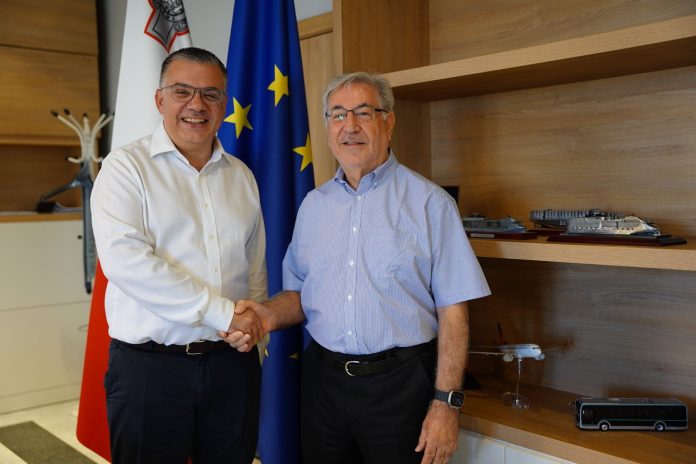The Ministry for Transport, Infrastructure and Public Works has started work on the design of the National Strategy for the Maritime Transport Sector, which is also a measure of the 2024 Budget.
The strategic position of our country in the middle of the Mediterranean sea has led to the fact that over the years our country has established itself as a maritime center that offers a range of services and facilities for many maritime activities. This sector is fully contributing to the strengthening of the economy and social development of our country.
To ensure that this sector continues to grow in a sustainable manner, the Government is drawing up a comprehensive strategy that puts forward a vision that will spur an increasingly resilient maritime transport sector. This is by protecting and strengthening the maritime activities that are already established, while giving room for more diversification. The strategy will be based on the domestic needs of our country while seeing that connectivity continues to expand. At the same time this strategy will ensure that the regulatory framework and coordination for the necessary enforcement related to maritime security will continue to be improved.
The work for the coordination and design of this strategy is being coordinated by the former European Commissioner for the Environment, Fisheries and Maritime Affairs, the Architect Karmenu Vella.
The Minister for Transport, Infrastructure and Public Works, Chris Bonett claimed that this strategy will continue to help strengthen the international reputation of the maritime transport sector in Malta, thus activities such as the maritime register will continue to grow in the coming years. He added that the Government is committed to drawing up a strategy based on the necessary actions, thus ensuring that the necessary infrastructural investment will continue to be made and more sustainable jobs will be created for Maltese and Gowis.
The Architect Karmenu Vella said that this strategy will see that it continues to build on the synergies and coordination between the public and the private sector, therefore wide consultations will be held with the interested parties, which all together will lead to design a strong and realistic strategy.
Photo: MTIP
![]()







